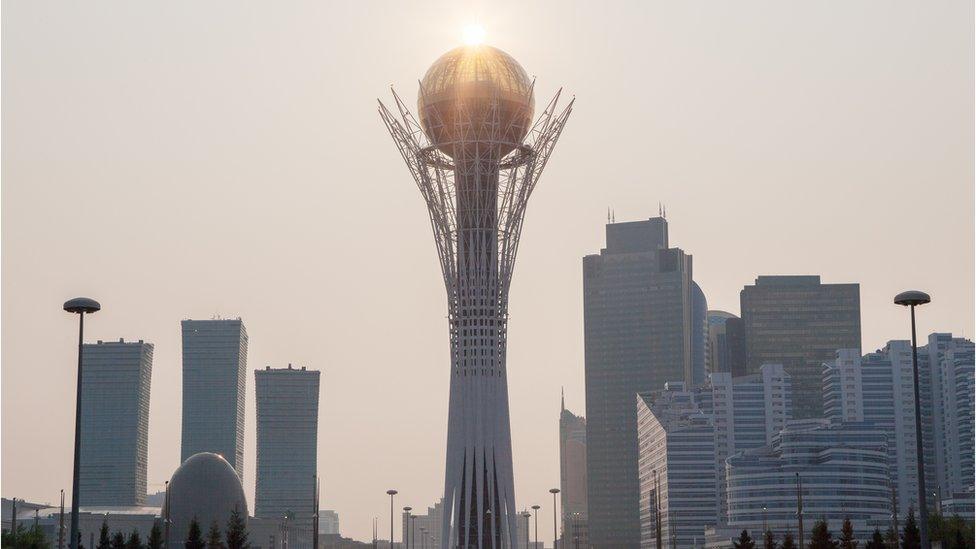Kazakhstan election: Hundreds arrested in poll protests
- Published
Footage from the city of Almaty shows protesters being led away by police
Police in Kazakhstan have arrested hundreds of people protesting against a poll to elect the country's first new president in 30 years.
The election was called after long-time leader, 78-year-old Nursultan Nazarbayev, stepped down in March.
His hand-picked successor, interim President Kassym Jomart-Tokayev, is widely expected to win the vote.
Protesters claimed the poll was not free and fair. But Mr Tokayev described the process as democratic and open.
Exit polls suggest 66-year-old Mr Tokayev, a former director-general of the United Nations Office in Geneva, won the election with 70% of the vote.
Large-scale protests - the biggest the country has seen in years - have been reported in Kazakhstan's capital, Nur-Sultan, and its largest city Almaty.
Hundreds of peaceful demonstrators, and several journalists and activists monitoring them, were detained by police.
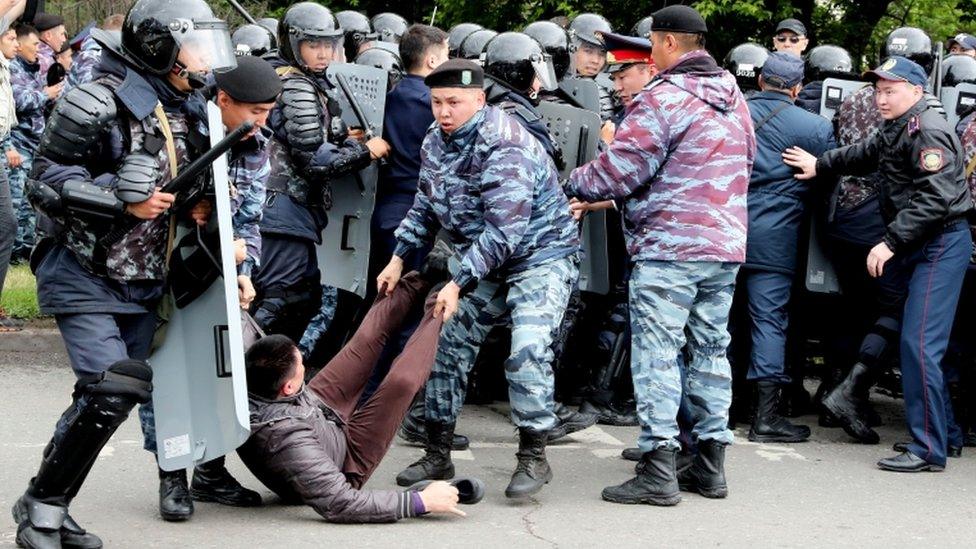
Protesters clashed with police in the capital, Nur-Sultan
Deputy Interior Minister Marat Kozhayev said 500 people had been arrested at "unsanctioned rallies", AFP news agency reports.
A BBC correspondent in Nur-Sultan saw people being dragged onto buses by riot police.
Mr Tokayev, who cast his ballot in the capital, has urged police to exercise restraint. He told the BBC his government would be tolerant towards those with different views.
Why are there protests?
Mukhtar Ablyazov, leader of banned opposition group the Democratic Choice of Kazakhstan, said the election was a sham with a predetermined outcome and urged his supporters to take to the streets in protest.
In a video posted to social media, he said "thousands of protesters" had gathered in Almaty's Astana Square. Demonstrators chanted "boycott" and "police with the people" before their protests were broken up by authorities.
Kazakhstan's interior ministry described the protesters as "radical elements seeking to destabilise society".
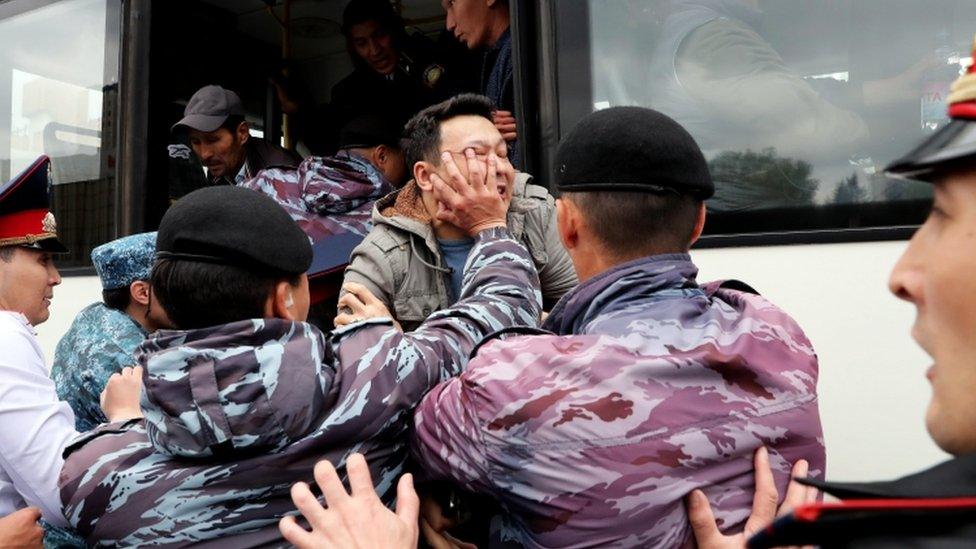
Protesters were seen being dragged into buses by riot police in Nur-Sultan
The prospect of a democratic handover of power in Kazakhstan is "an illusion", Human Rights Watch has said.
The Organisation for Security and Co-operation in Europe (OSCE), which sent more than 300 observers to monitor the poll, has never recognised an election in the country as fully democratic.
Mr Tokayev was running for the ruling party - with backing from Mr Nazarbayev - against six little-known rivals.
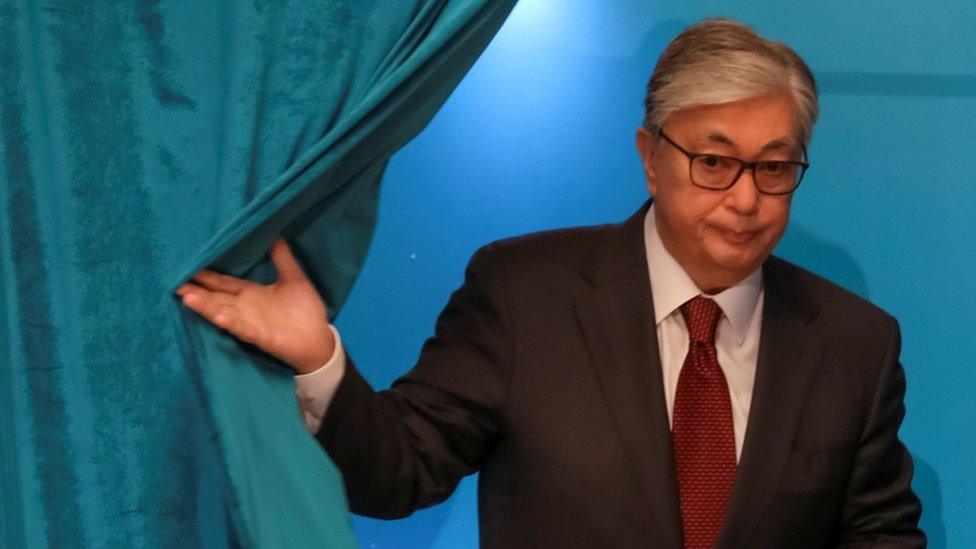
Kassym-Jomart Tokayev is widely expected to win
Full election results are expected on Monday. One exit poll, conducted by local pollster Kogamdyk Pikir Institute, gave Mr Tokayev 70.13% of the vote.
His closest rival, journalist and veteran opposition leader Amirzhan Kosanov, won 15.39% of the vote, according to the pollster.
What is the background?
In March, Mr Nazarbayev, the only man to lead the country since it emerged from the collapse of the Soviet Union in the early 1990s, shocked the country by announcing his resignation.
Nevertheless, Mr Nazarbayev is expected to retain much of his influence as head of the governing party.
Given Mr Tokayev's close links to the outgoing leader, the legitimacy of the presidential election has been met with scepticism.
Mr Tokayev's first decision as interim president was to rename the capital Astana as Nur-Sultan in homage to Mr Nazarbayev.
That decision, which went ahead without public consultation, fuelled disillusionment with Kazakhstan's government.
In the build-up to the election, authorities have reportedly been cracking down on opposition to Mr Tokayev's interim presidency.
Protesters have been sentenced to short stays in jail and police have been raiding activists' homes, according to AFP.
- Published7 June 2019
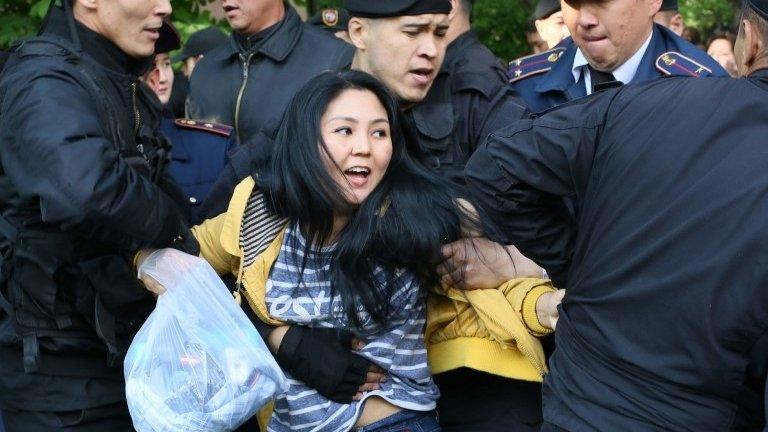
- Published19 March 2019
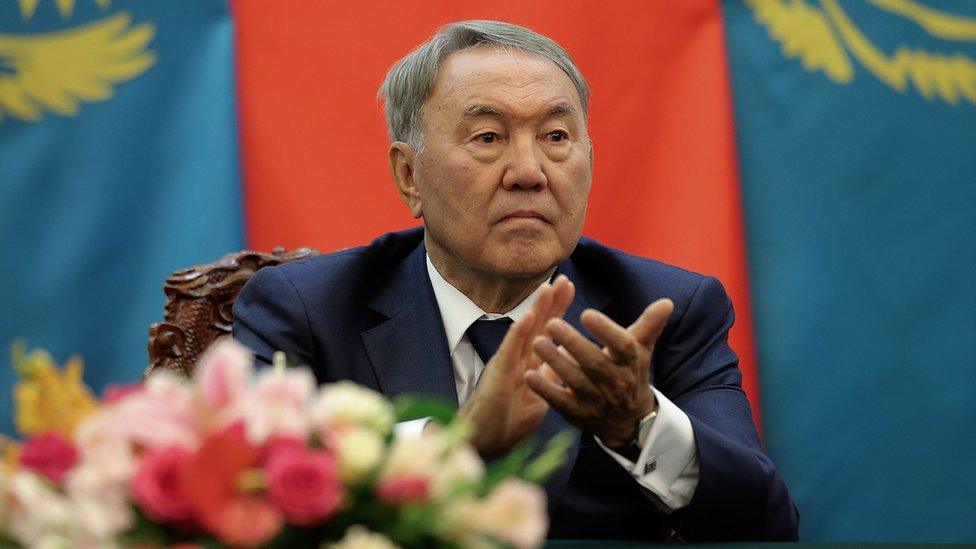
- Published21 March 2019
